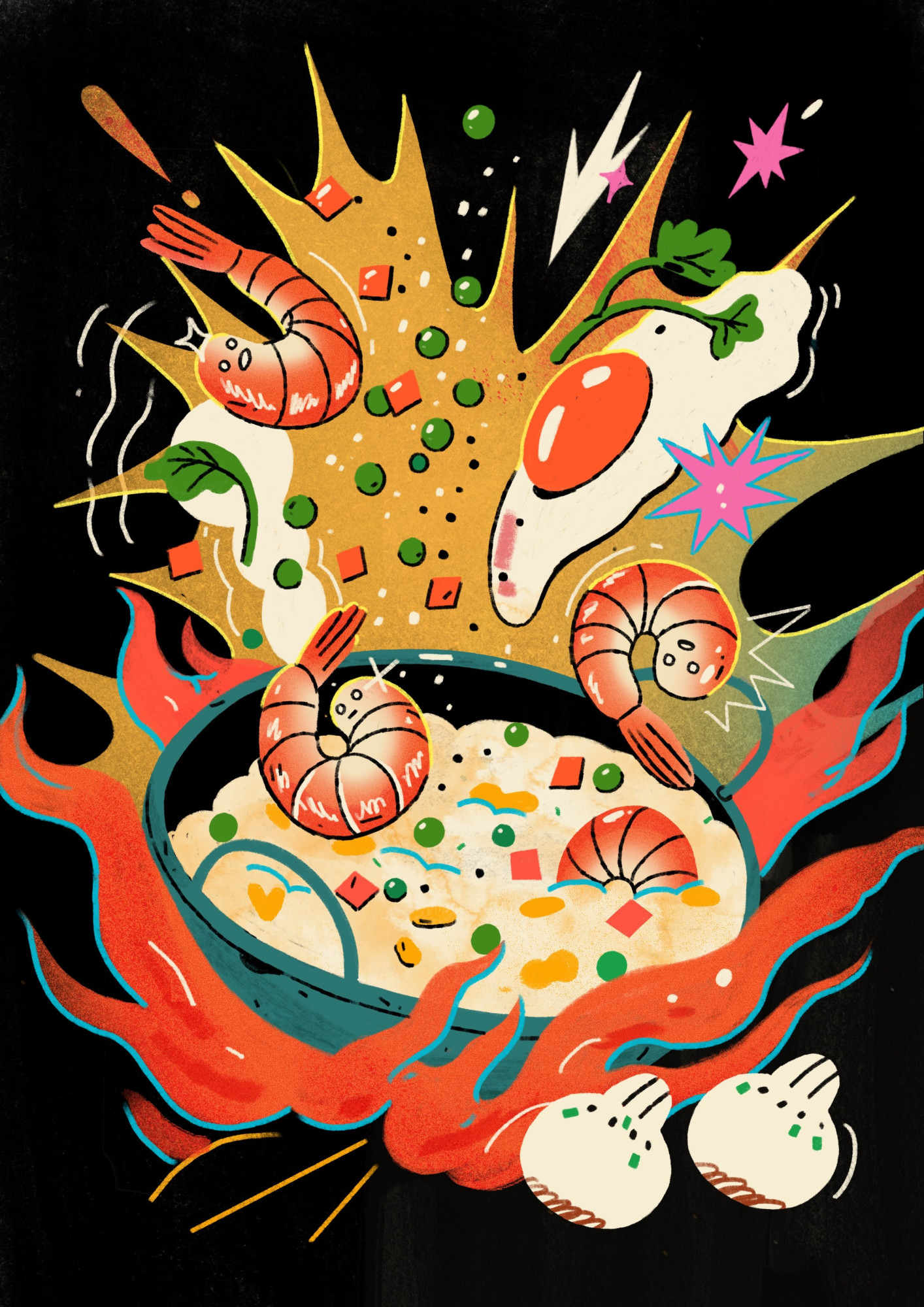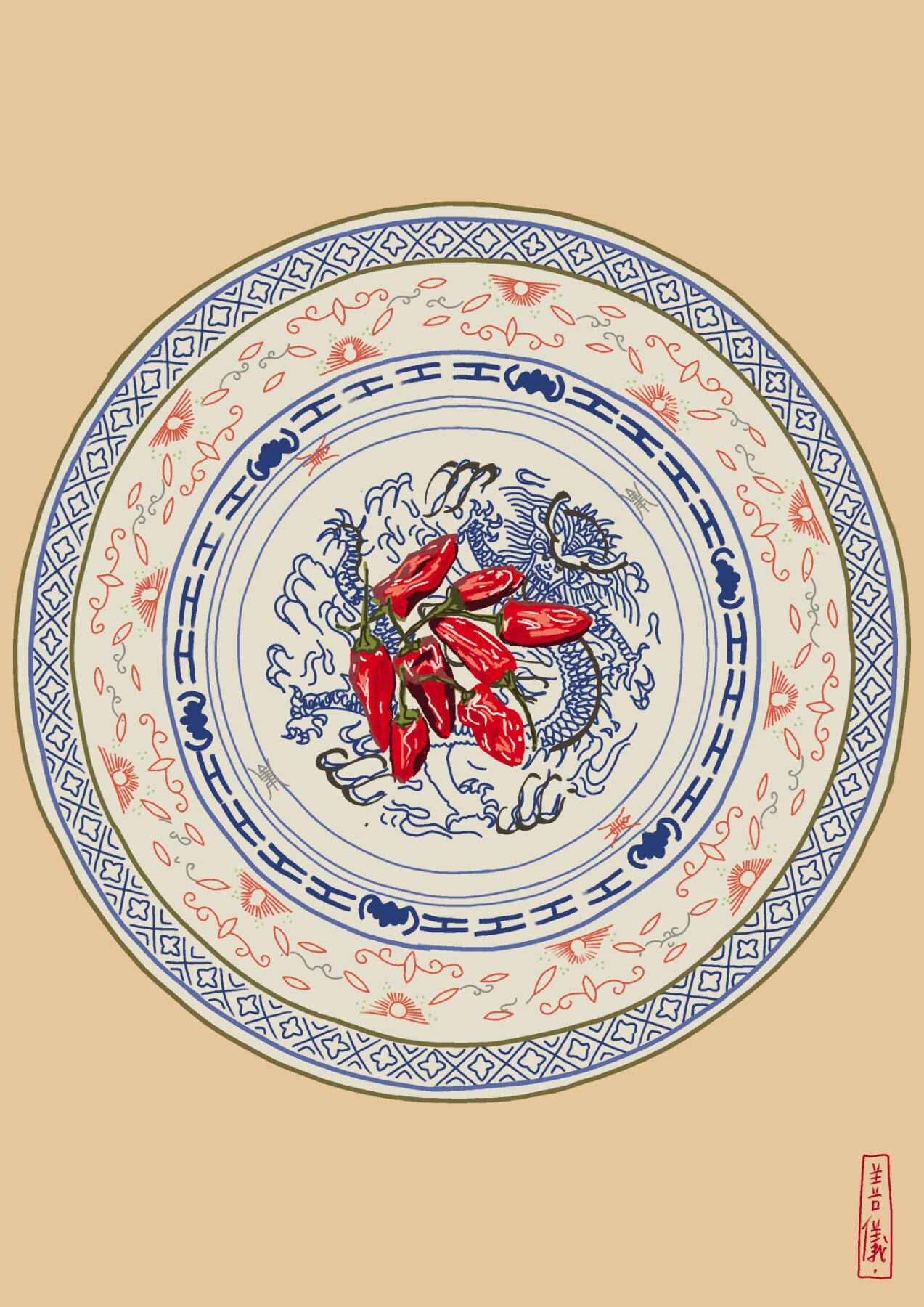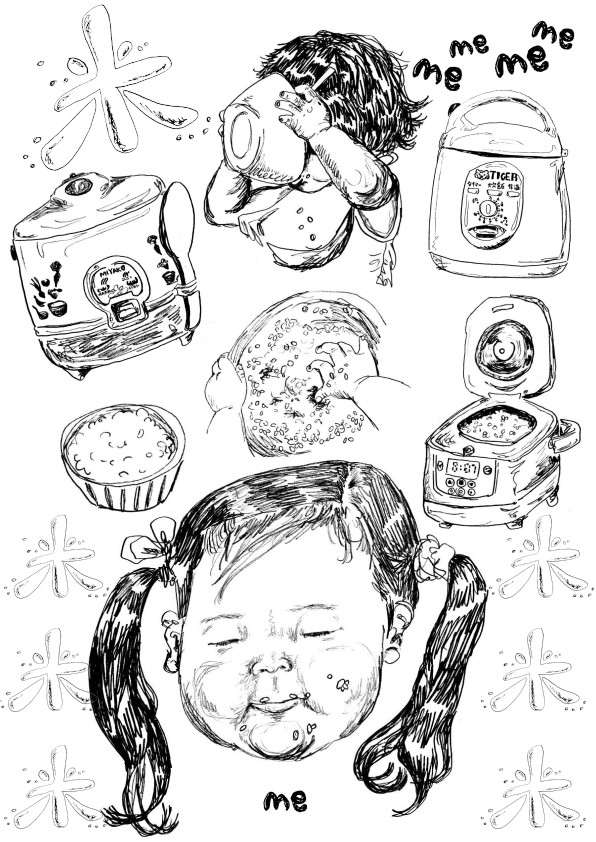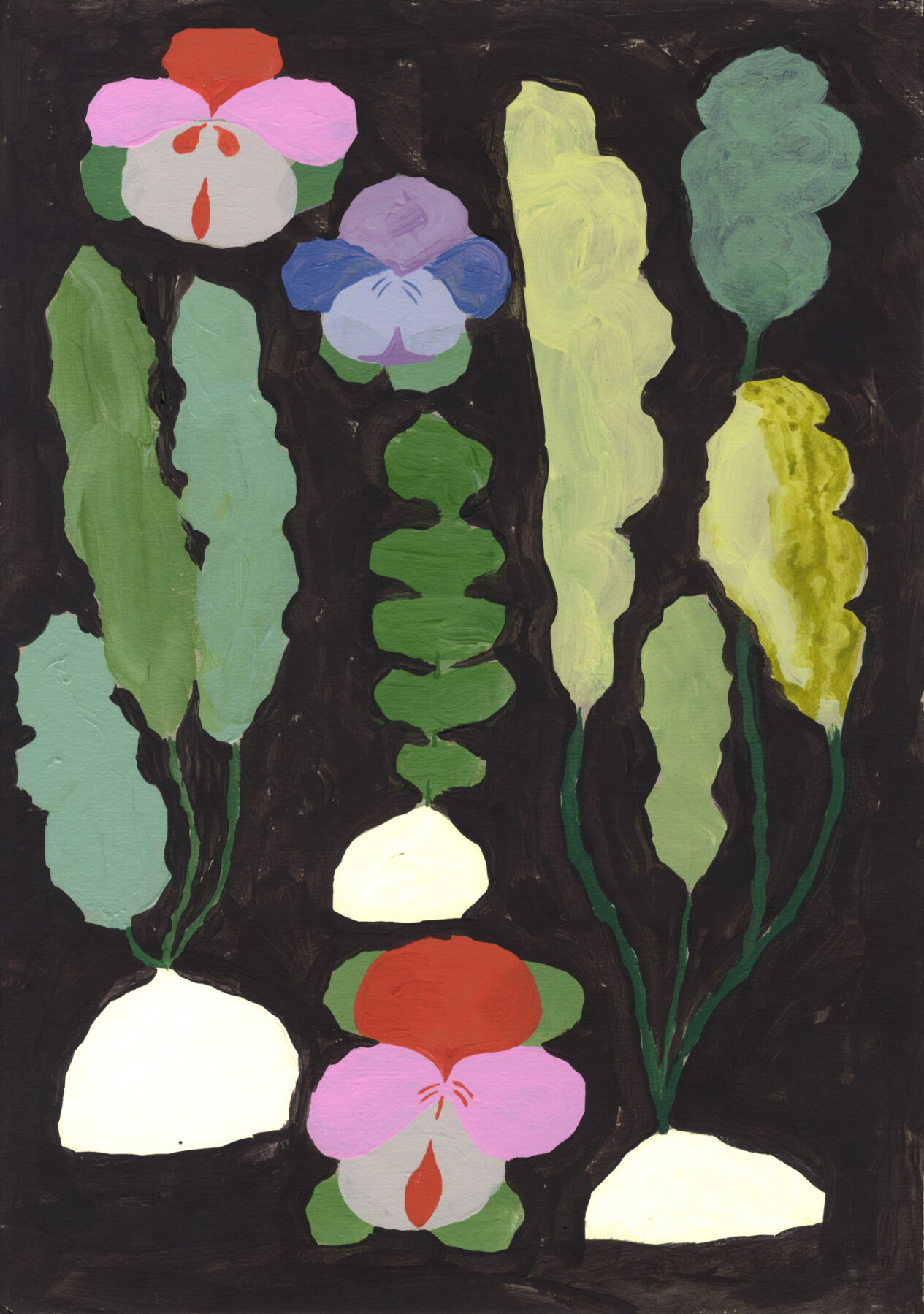Nata nel Kent, cresciuta a Hong Kong e ora di base a Londra, dove vive e lavora, Jenny Lau è una consulente di comunicazione di origine cinese, nonché scrittrice. Desiderosa di andare ad approfondire le proprie radici, nel 2018 Lau ha deciso di usare il cibo come “porta d’accesso” al complesso e affascinante universo della cultura cinese, lanciando una piattaforma online che ha chiamato Celestial Peach, traendo ispirazione da un’antica leggenda del folklore taoista, secondo la quale la dea Xiwangmu coltivava, nel suo mitico palazzo sul monte Kunlun, un pescheto che dava frutti solo una volta ogni 3000 anni, e tali frutti avevano il potere di dare longevità e immortalità a chiunque li mangiasse.
Inizialmente concepita come una prospettiva vegana sulla cucina cinese, Celestial Peach si è allargata fino ad abbracciare le storie — legate a piatti, ingredienti e sapori — di coloro che fanno parte della cosiddetta “Chinese diaspora”, cioè persone che, come Lau, sono nate o cresciute altrove.
A partire dal 2019, dapprima su Instagram, Lau ha pubblicato con l’hashtag #ChineseFoodiesofIG una serie di interviste a chef, blogger, scrittrici e scrittori, coinvolti in discussioni riguardanti cibo e identità.
In poco più di due anni le interviste sono arrivate a 100, e per celebrare il traguardo Lau ha chiesto a una serie di artiste e artisti — anche loro appartenenti alla “diaspora cinese” — di realizzare delle illustrazioni ispirate alle parole degli ospiti.
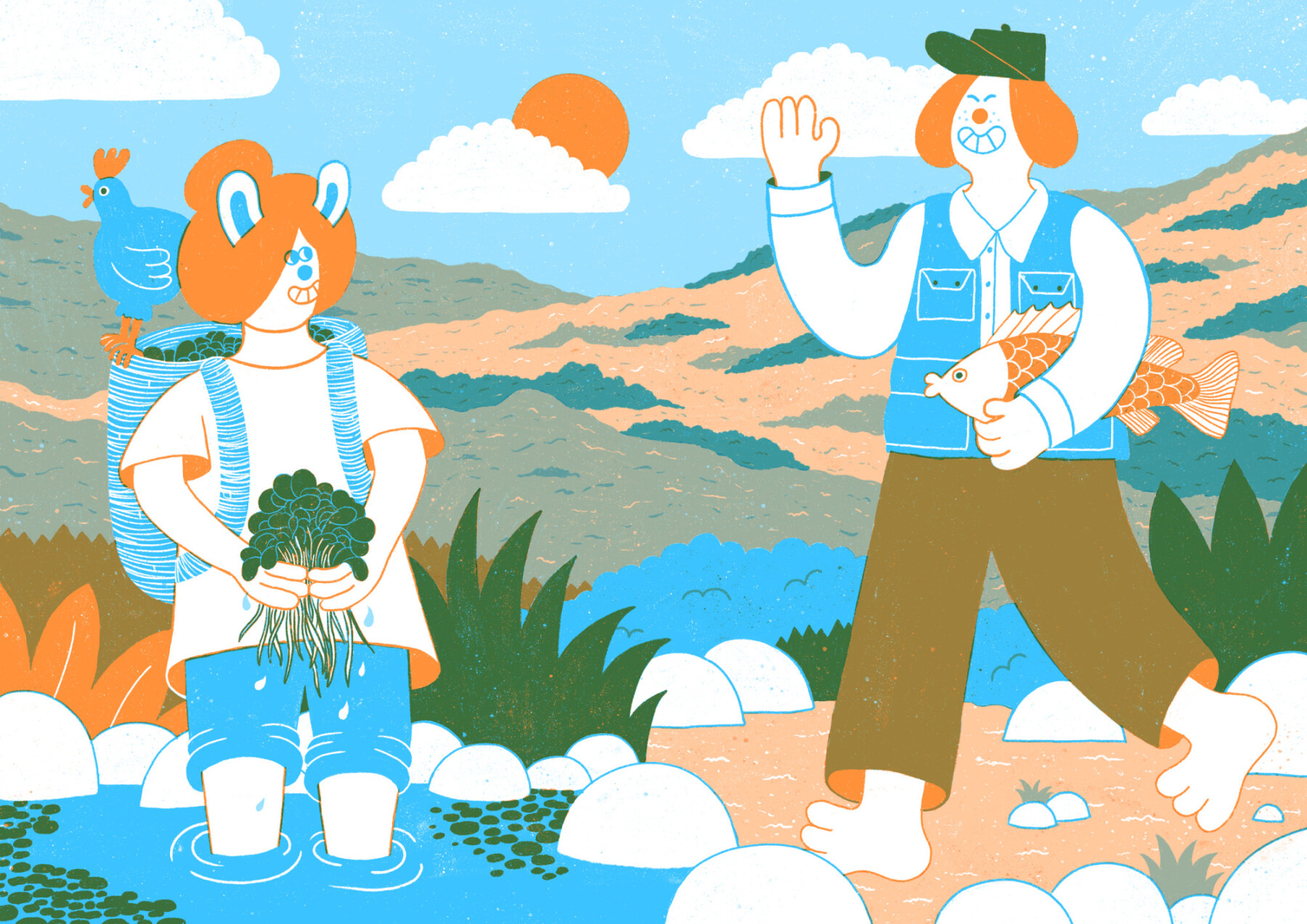
“Cantonese cuisine values vividly fresh ingredients, and so my parents loved foraging for the best that the Pacific West Coast had to offer. Rock cod caught by my father, wild watercress gathered by my mother, and locally raised chickens all made their way to our dinner table. Everything was simply prepared and absolutely delicious. My father has passed away, but I still have a small jar of tiny wild kumquats that he harvested and salted. Steeped in boiling water with honey, it makes a fantastic medicinal tea. But I can’t bear to use any of it!” — Lee F. Man
(courtesy: celestialpeach.com)
Ne è uscita fuori una bella mostra online, #ChineseFoodiesofIG100, molto stimolante dal punto di vista visivo — piena com’è di stili e sensibilità differenti — e assai efficace nell’incoraggiare spettatrici e spettatori ad andare a leggere le interviste, dove, spiega Lau, «si scoprono storie di famiglia, migrazione, identità nazionale, orgoglio culturale. Alcune sono divertenti, altre sono agrodolci. Molte sono profondamente emotive. Si potrò assaporare il gusto del multiculturalismo e visitare capsule del tempo sensoriali. Sono tutte così diverse, eppure qualcosa di intangibile le lega insieme. È ciò che io chiamo “cinesità”1. Queste 100 storie mi hanno accompagnata nel mio proprio percorso di radicamento culturale. Immagino di stare davvero cercando di trovare, o assaporare, la mia strada di casa».
Sono 40 le illustratrici e gli illustratori di tutto il mondo che hanno preso parte al progetto:
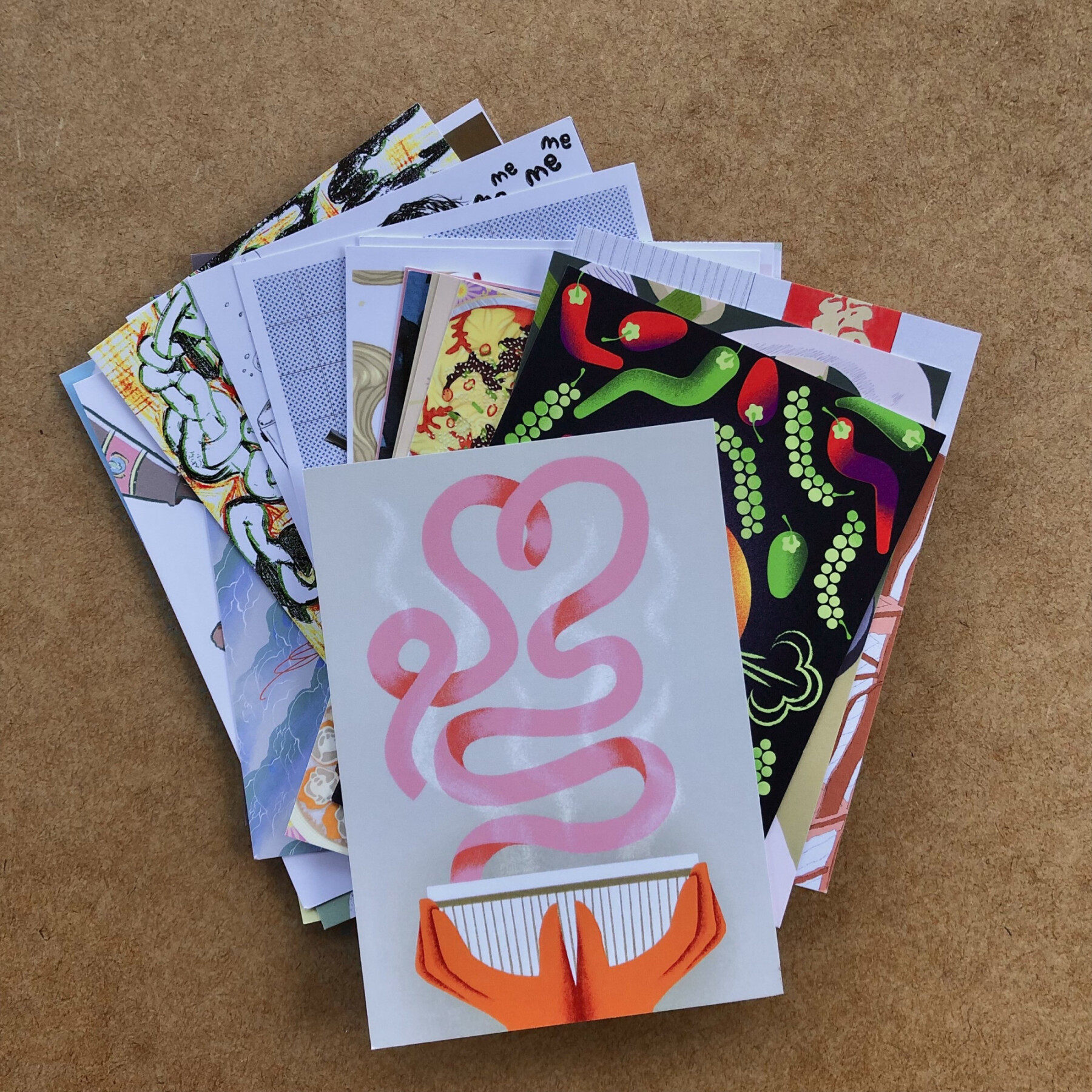
(courtesy: celestialpeach.com)
Alejandro Chen Li
Amy Phung
Bess Chan
Charlotte Mei
Cherie Kwok
Chin Lin Gan
Christine Apiou
Claud Yousuf
Edward Luper
Ei T
Elina Tanaka
Erica Ho
Gemini Cheng
Giulia Lai
Grace Wong
Hannah Kwan Cosselmon
Huang Lian Li
Ida Lehtonen
Jennifer Ho
Jessie Thavonekham
Jonah Schulz
Justin Wu
Kaitlin Chan
Karon Ng
Katy Wang
Kayla Sik Chi Lui
Kenn Lam
Mildred Cheng
Morokoth Fournier
Nicole Tan
Oscar Sjöstrand
Penny N
Poppy Seen Yee
PQ Choi
Ruby Lau
Shian Ng
Tayen Kim
Thomas Hedger
Xinyue Pan
Yuk Fun
Una selezione di opere si può anche acquistare in formato cartolina, ma consiglio pure di tener d’occhio un’altra promettente iniziativa di Celestial Peach: si chiama Lost in Traslation ed è un abbecedario del cibo cinese, dalla A alla Z (per ora è arrivato alla O).

“Warmth and comfort – ‘hug in a bowl’ – that feeling.” — Emily Chung of Rangoon Sisters
(courtesy: celestialpeach.com)
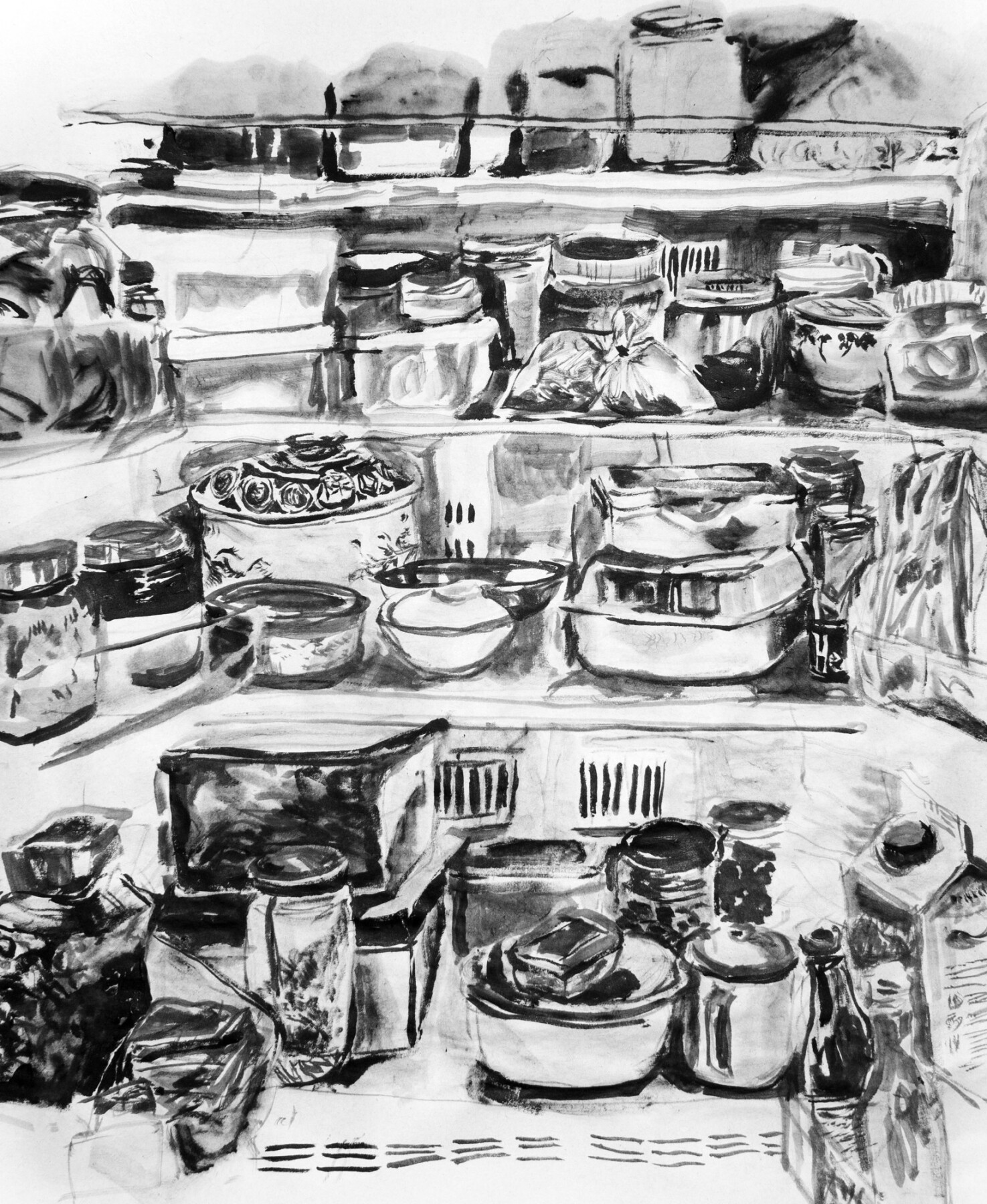
“Home tastes like a fridge full of leftovers or dishes left over from the meal that I just missed – and me sneaking cold food in my parent’s house whilst my mum lectures me on the heating up of food and how it’s bad for my yin, and how I’ll get sick if I eat too much cold food. I secretly love cold leftovers of my mother’s cooking!” — Victor Liong of Lee Ho Fook
(courtesy: celestialpeach.com)
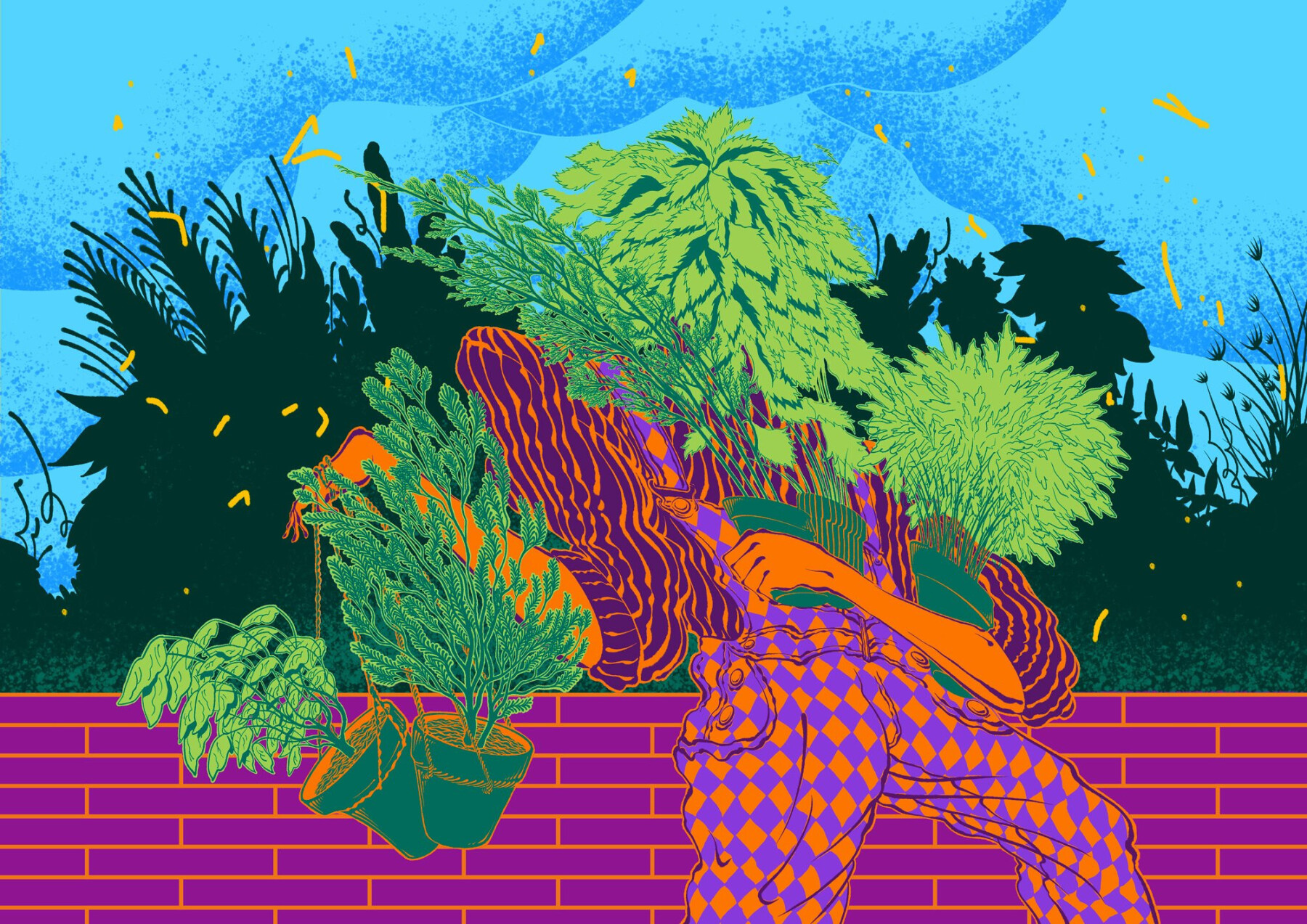
“Whatever my wife Cindy and I are cooking that day/night. She grows over 200 herbs, vegetables and fruits on our property, so our home will get a seasonal veggie and fruit scent.” — George Chen
(courtesy: celestialpeach.com)
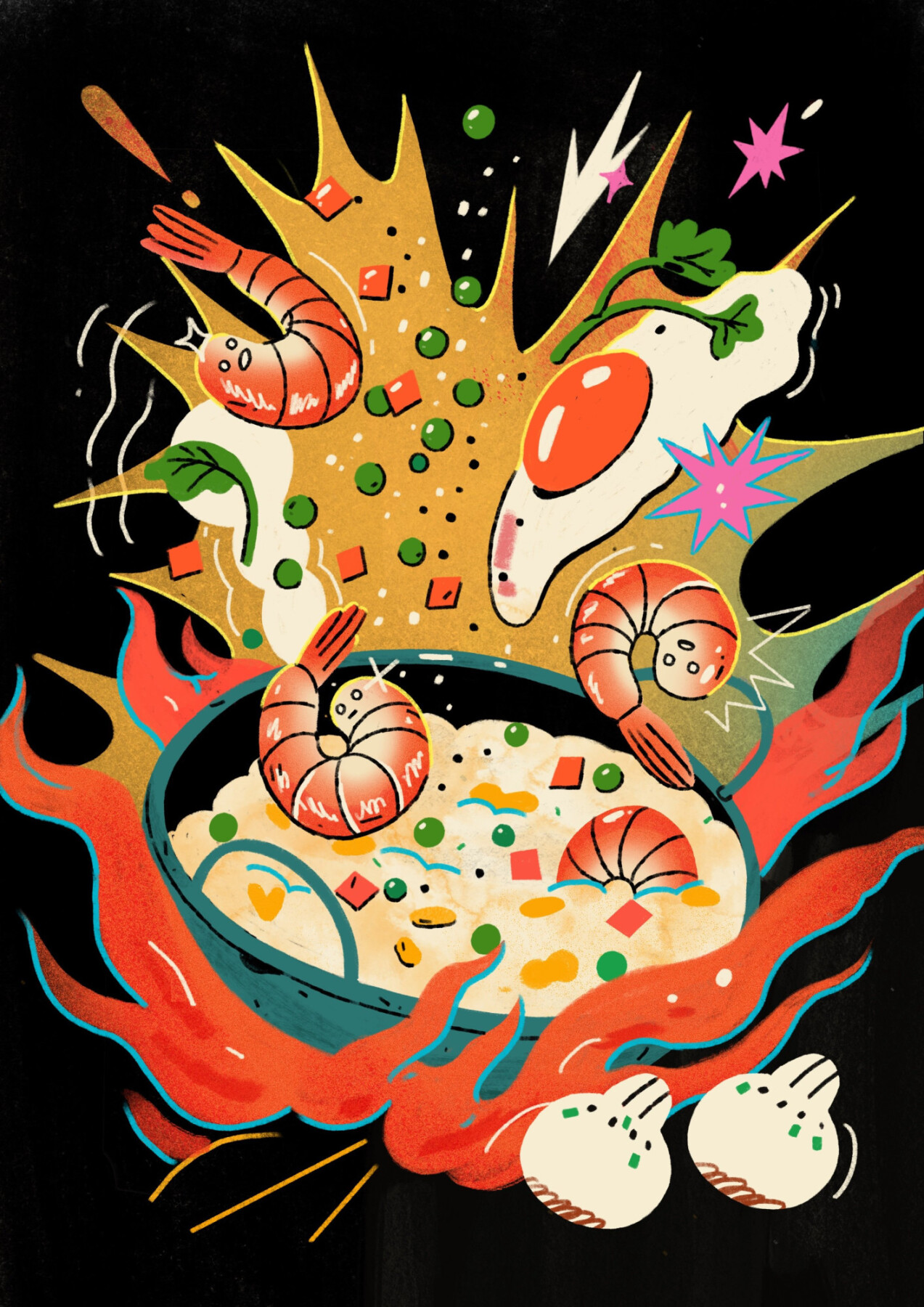
“Shrimp fried rice and dim sum!” — Tao Leigh Goffe
(courtesy: celestialpeach.com)
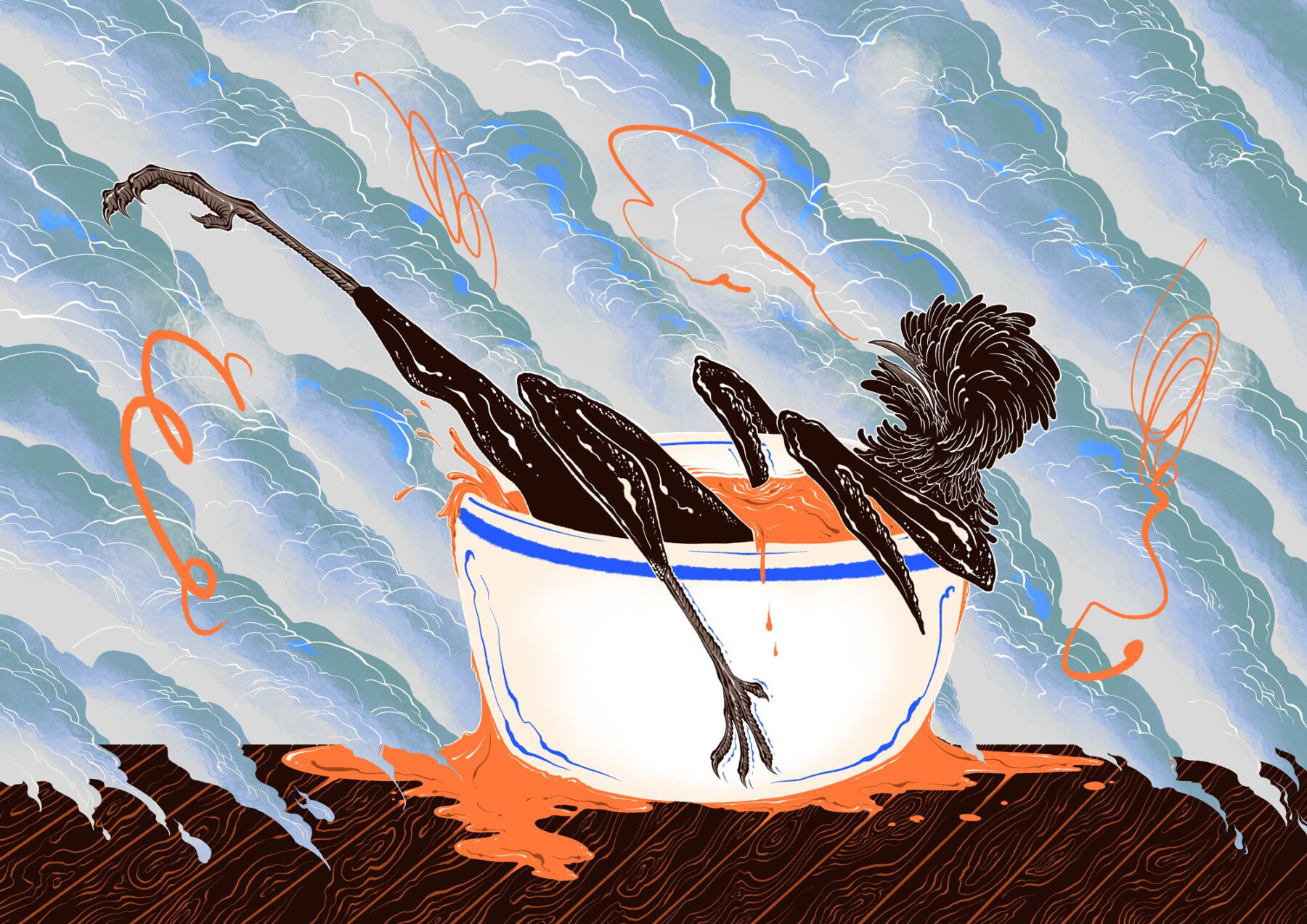
“My mother’s silkie chicken soup. It’s a beautiful dish that has a shiny black chicken floating in a clear broth, bright orange-red goji berries, dried scallops, a smattering of ginger. This is the welcome home dish. It’s also the, where’s my grandchildren dish, the I love you dish, the don’t sleep too late or you’ll have wrinkles dish, the goodbye dish before I leave Taiwan.” — Tiffany Ran
(courtesy: celestialpeach.com)
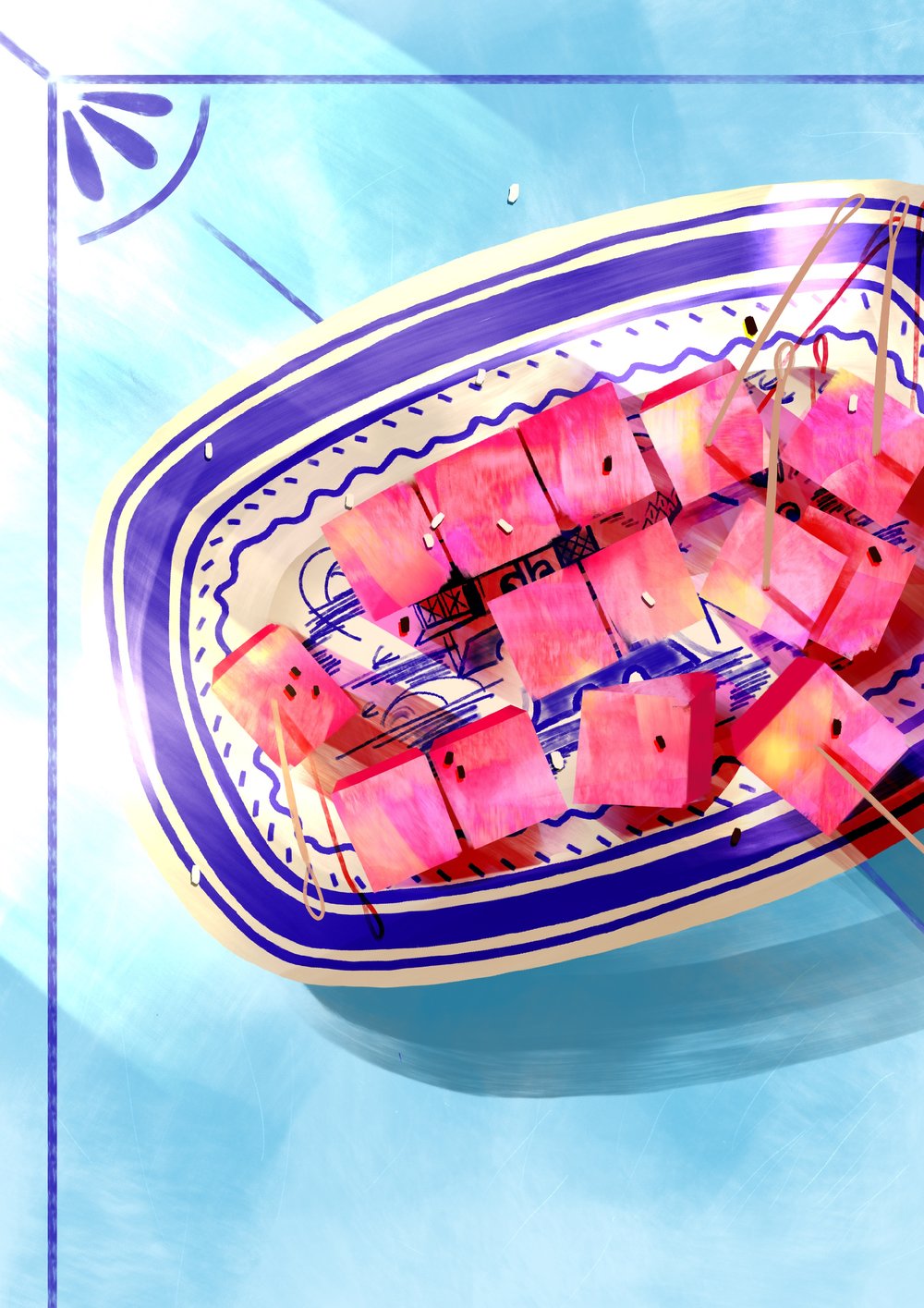
“Breakfast was always the highlight at home. It’s a mum-made toastie with spam and egg, served with a Hong Kong style milk tea – strongly brewed breakfast tea, sugar and evaporated milk. Home also means a variety of foods from different cuisines on our dinner table, from Portuguese roast pork knuckle, enoki beef roll in teriyaki sauce, salted & pepper wings, steamed fish with ginger and scallions… and watermelons that are all nicely cut into chunks after dinner on a hot summer night.” — Sandy Tang
(courtesy: celestialpeach.com)
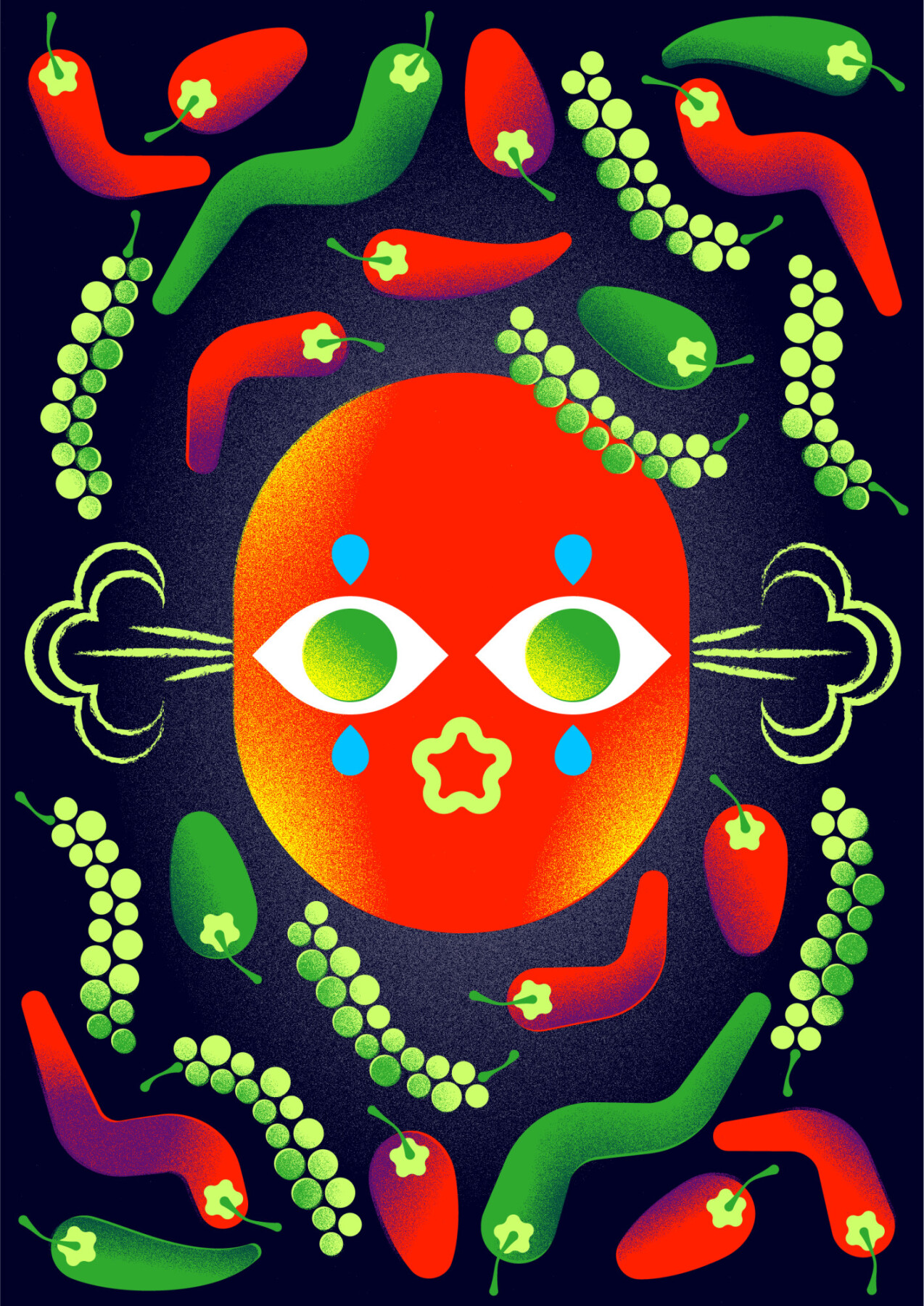
“Rice, curry, spices – and beads of sweat dripping down your forehead as you eat from both the chili and the humidity. This is my comfort zone!” — Mark Wiens of Migrationology
(courtesy: celestialpeach.com)
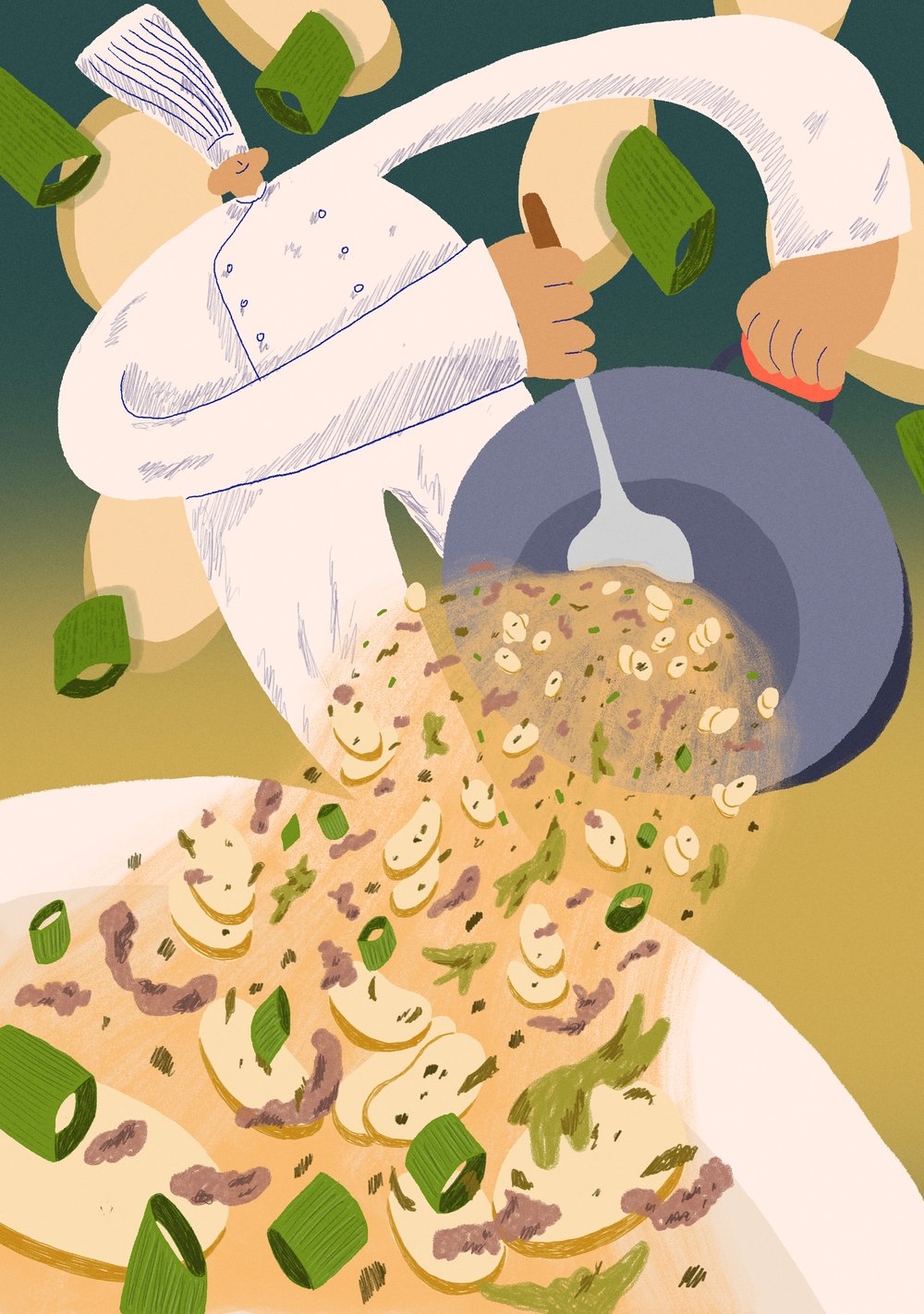
“My Dad is the chef at home, he’s a very good cook. After leaving China in the 1930s, my grandfather opened Anglo-Chinese restaurants in Liverpool. One Ningbonese dish he makes is rice cakes (年糕) very simply cooked with fatty minced pork, soy sauce and pickled cabbage. It’s a light, thrifty peasant dish but it fills you up.” — Michael Zee of Symmetry Breakfast
(courtesy: celestialpeach.com)

